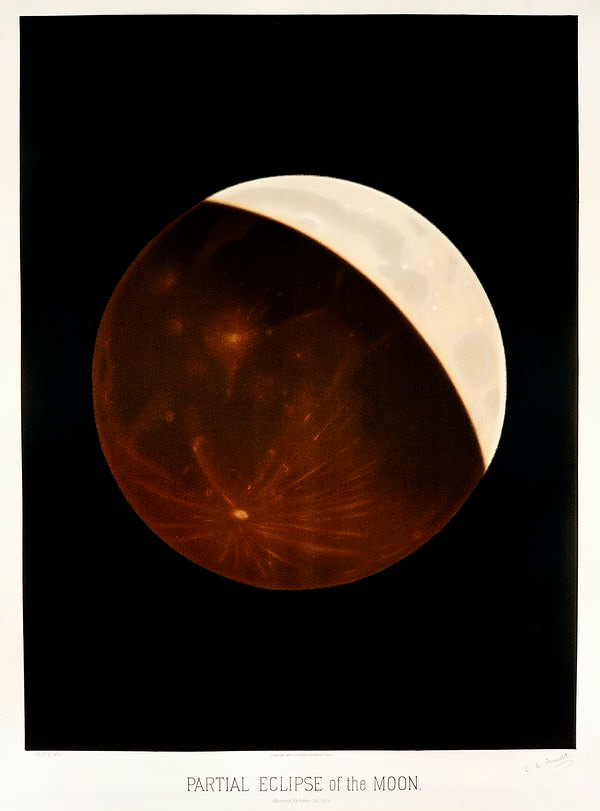🌿Wild Ones #46: Environmental Communication Digest
Environmental keyword: 'vector' + TRAC:COVID pandemic communication dashboard + Language and climate justice + more!

Hi everyone, welcome back to Wild Ones, a weekly digest by me, Gavin Lamb, about news, ideas, research, and tips in environmental communication. If you’re new, welcome! You can read more about why I started Wild Ones here. Sign up here to get these digests in your inbox:
🌱Environmental Keyword
‘Vector’
“Being a vector calls attention to reasons humans may resist relationality…To understand being a human as being a vector shows that we are simultaneously vulnerable to, and accountable for, community’s contagions: a potentially transformative revelation.”
– Darcie DeAngelo, in Environmental Humanities ‘Living Lexicon’ (May 1, 2021).
In a recent entry for the Environmental Humanities ‘Living Lexicon’ series, medical anthropologist Darcie DeAngelo shares her perspective on the environmental keyword ‘vector.’ It’s a short, fascinating piece that you can read here.
But I’ll just share a couple of interesting excerpts from DeAngelo’s article that stuck with me:
“Virologists define vector as an organism that carries disease without being infected, but it becomes possible to imagine extending this concept to humans when asymptomatic and seemingly uninfected humans can carry deadly viruses…During the COVID-19 pandemic, humans became vectors…Being a vector shows that a person can radically alter another and that these changes—like infection—can spread rapidly, and rapidly beyond control.”
“To accept our entanglements is to confront traces we leave behind and vulnerabilities in our own pores and membranes. Being a vector confronts us with the fact that we are thoroughly relational and that relationality is a condition, not a choice.”
👀 What I’m watching
Bill McKibben shared this interesting video in his climate newsletter: “An interesting (and surprisingly understandable) video from the folks at the N.G.O. UnTax lays out the case for ceasing to tax labor, and relying instead on tax revenues from non-renewable natural resources, such as fossil fuel”:
🎧 What I’m listening to
We’re Gonna Carry That Weight a Long Time, by David Farrier: “David Farrier is the author of Footprints: In Search of Future Fossils, a meditation on the Anthropocene and a search for the fossils that humans are leaving behind. In this essay, David reflects on the material weight of human-made objects and on the home as a structure that holds and records the trace of our presence on the Earth.”
OVERHEATED: An interview with Kate Aronoff, climate journalist at The New Republic, On A World to Win with Grace Blakeley.
🔍 Tools I’m exploring
TRAC:COVID Trust and Communication: a Coronavirus Online Visual Dashboard:
“The TRAC:COVID project investigates online conversation surrounding the COVID-19 pandemic using aggregated data sampled from Twitter (so individual tweets are not shown). The dashboard combines Corpus Linguistic tools (the linguistic and computational study of textual data) with data visualisations to allow the interpretation of a large number of tweets. Frequent patterns of word and hashtag use, word and hashtag combinations, change over time and the proliferation of web links can be viewed in the dashboard.”
📰 News and Events
Big Oil’s Bad, Bad Day, by Bill McKibben: “Crushing blows to three of the world’s largest oil companies have made it clear that the arguments many have been making for decades have sunk in at the highest levels.”
A live chat with Alicia Garza and Leah Penniman on climate and racial justice (video recording from today, May 26) on Grist.
The Gen Z climate activists going viral on TikTok: “Dance routines and cat memes are usually what goes viral on TikTok. But now young eco-influencers are racking up millions of views with videos on everything from trash to the rights of nature.” In DW.
International Conference on Ecocriticism and Environmental Studies. 16-17 October 2021 – London/Online. Organized by London Centre for Interdisciplinary Research.
Monkeys adopt ‘accent’ of other species when in shared territory. By Natalie Grover in The Guardian: “Brazilian Amazon primates found to adapt their calls to get along better with their neighbours.”
ASLE (Association for the Study of Literature and Environment) 2021 Virtual Conference: EMERGENCE/Y: “We will ask: What is the time and history of the crisis of now? While crisis, like emergency, appears in the short term, its emergence is much longer in the making. How can work by ecocritics and environmental humanists work across these disparate, even divergent timescales? We will explore: How is crisis emplaced? How does it make and remake place? How do the dislocations forced by crisis—of human and nonhuman populations—reshape place attachment? What does attachment to a refuge feel like?”


📚 Research
Towards narrative political ecologies. By Leila M. Harris, in Environment and Planning E: Nature and Space.
“…All told, a focus on story and storytelling, offers a number of relevant and rich openings to understand and engage complex, unequal, and dynamic socio-natures. While these elements have been present in nature-society work from some traditions and lines of inquiry, the time is ripe to broaden and deepen these engagements to more fully imagine, and respond to, key nature-society challenges.”


Deciding how to make climate change adaptation decisions, by A.R. Siders and Andrea L. Pierce, in Current Opinion in Environmental Sustainability.
The bad environmentalism of ‘nature is healing’ memes, by Kai Bosworth, in Cultural Geographies: “What can memes teach us about shifting popular-cultural understandings of nature?”
Collaborative conservation in the United States: A review of motivations, goals, and outcomes, by Kate Wilkins, et al. in Biological Conservation.
An understanding of trust, identity, and power can enhance equitable and resilient conservation partnerships and processes, by Alia M. Dietsch, Dara M. Wald, Marc J. Stern, and Brooke Tully in Conservation Science and Practice: “…understanding how language and frames intersect with and reinforce group identity can help facilitators navigate [conservation] partnerships successfully and enable participants to speak to each other's concerns without triggering identity threats.”

💡 Ideas
How we talk about the climate crisis is increasingly crucial to tackling it, by Susanna Rustin, in The Guardian: “Our emotional register – how ‘doomy’ or ‘hopeful’ we are – will inevitably shape the policies we put forward”
The impact of climate change on language loss. By Anastasia Riehl, in The Conversation:
“The IPCC report warns us that if the world does not come together to prevent a projected global temperature increase of 1.5 degrees, the future will be one of loss: loss of land, of food and water supplies, of lives and livelihoods. It will also be a loss of languages, of the knowledge and cultures they embody, and of the diversity and richness of human experience that they represent.”
Where land use and landscape photography converge: A would-be museum exhibit, canceled due to COVID, is now collected in the book ‘American Geography: Photographs of Land Use from 1840 to the Present.’ A review by Surya Milner.
How Suzanne Simard changed our relationship to trees: “In ‘Finding the Mother Tree,’ a maverick forest ecologist relates her scientific journey — one that follows in the footsteps of traditional Indigenous knowledge.” By Claire Thompson in HCN.
Tracking Exxon’s blame game, an interview with Dr. Geoffrey Supran, “on the company’s evolving deception tactics — and the data that proves it”


💬 Quotes I’m thinking about
“In traditional communities all over the world, this ethic of communal reciprocity, in my experience, is what separates acts of selfishness from the work of leadership. The role of the artist, in part, is to develop the conversations, the stories, the drawings, the films, the music—the expressions of awe and wonder and mystery—that remind us, especially in our worst times, of what is still possible, of what we haven't yet imagined. And it is by looking to one another, by attending to the responsibilities of maintaining good relations in whatever we do, that communities turn a gathering darkness into light.”
– Barry Lopez, A Way Out of Our Predicament (in an interview).
✏️Writings from my desk


Thanks so much as always for your interest in my work, and if you found this digest useful, please consider sharing with others who might find it interesting too😊 I'd also love to hear from you. Leave a comment to let me know what you think about this digest, what areas of environmental communication you’re involved in/most interest you, or anything you’d like to see more of in Wild Ones:)



